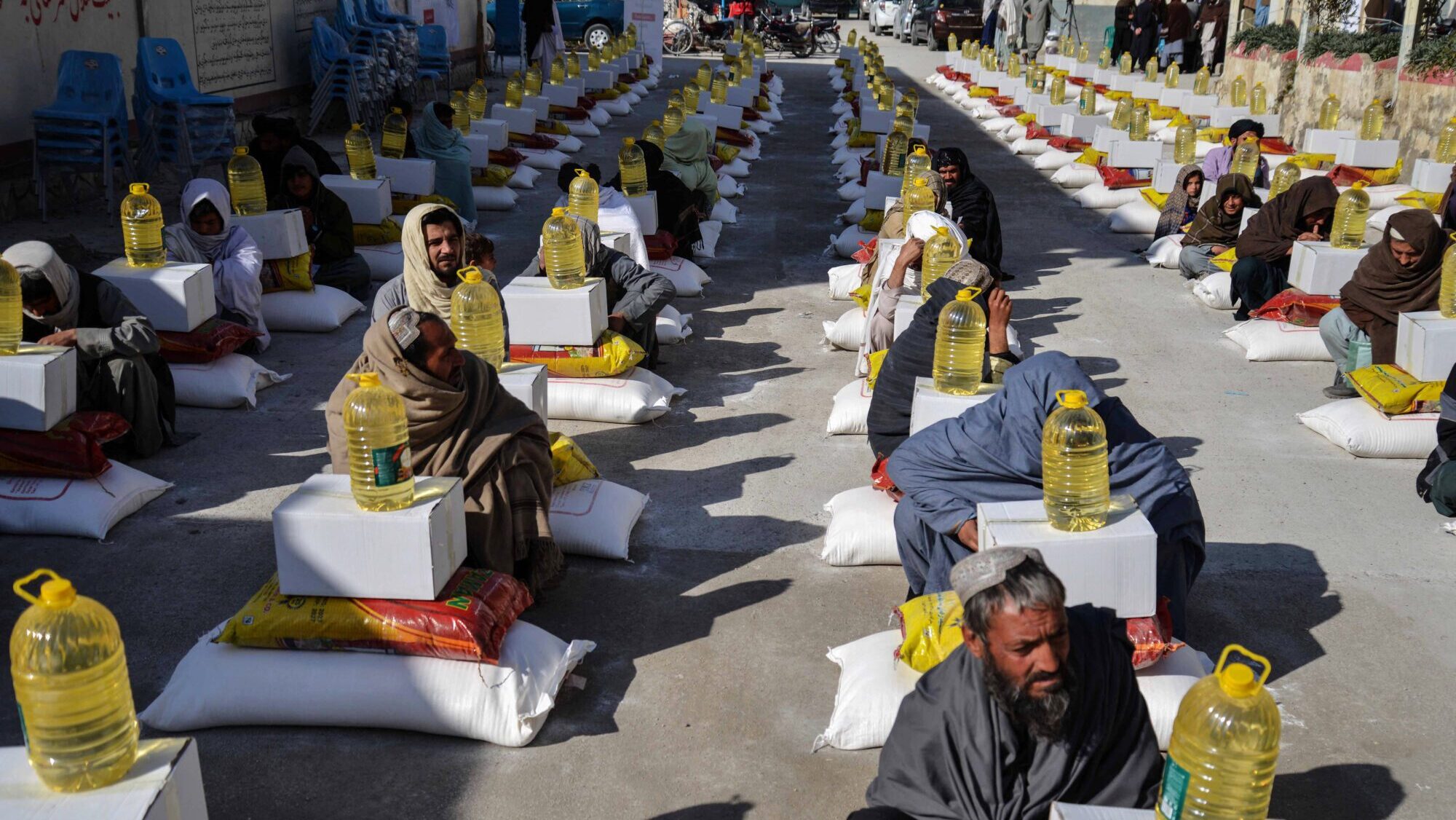
Afghan refugees deported from Pakistan receive food aid from the Red Cross
Sanaullah SEIAM / AFP
Attempts by the central government in Pakistan to crack down on millions of long-term resident Afghan refugees could set in motion a fresh refugee stampede to Europe.
Human rights organisations warn that 800,000 Afghans face immediate deportation, following some 375,00 Afghans who have left the country since late last year. Islamabad signalled its intent to begin mass expulsions of recently-arrived Afghan refugees in November 2023, ending a tradition of openness to those fleeing conflict in the neighbouring country,
EU operatives are already on the ground dealing with the exodus of Afghans, with one Council of Europe official calling on nations to ‘do more’ to facilitate refugees in conjunction with ‘civil society’ at an embassy level.
Pakistani authorities are increasingly at odds with a Taliban-supported Islamist group, Tehreek-e-Taliban Pakistan (TTP). Its activities along the Afghan-Pakistan border and among the country’s expat community prompted army officials in December to call for Pentagon assistance to remove the terror group.
Pakistan unveiled its multi-phased euphemism-free ‘Illegal Foreigners’ Repatriation Plan’ last October, with Amnesty International claiming that 1.7 million Afghan refugees could leave Pakistan as a consequence of the threat of state harassment and physical removal.
The number of Afghan asylum seekers has spiked in Europe since the collapse of the Western-backed government in 2021, with many populist politicians linking the influx of refugees with an increase in street-level crime.
Comme vous tous, je suis bouleversée par le meurtre de #Matisse, 15 ans, par un migrant afghan déjà connu de la police, samedi soir, à Châteauroux.
— Marion Maréchal (@MarionMarechal) April 29, 2024
Voici la terrible liste non exhaustive des nombreux autres innocents tués par des Afghans en France et en Europe. ⤵️ pic.twitter.com/oBqu56GQ0h
A decade of calamitous migration policy has forced the issue to the forefront of the EU’s agenda in recent years, with Brussels commonly accused of institutionalising open border policies through the rollout of the bloc’s Migration Pact.
The European Commission did not respond to media inquiries from The European Conservative at the time of publication regarding its response to the crisis.
